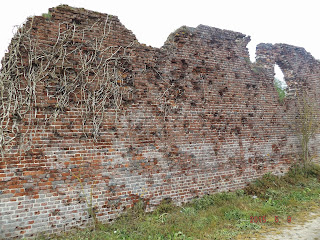As you visit the
many museums and collections dedicated to WW1 in the British parts of the
western front, you begin to see lots of the same stuff …
Helmets and belts
and hats and guns and shells, even tins of bully beef and maconachie, and SRD
jars – from the rum ration.
It is a reminder
that even as we think of those individuals who have paid the ultimate price for
victory, that there were some who made an incredible profit because of the war.
Arms manufacturers of course, but even those who make pottery jars or woolly
socks, apricot jam and coffins.
Even now, how much
do we spend to keep memorials as pristine as many are?
And how much is
made from us in the cause of remembrance?
Visiting Ieper is
interesting. Between the “In Flanders Fields” museum and the Menin Gate
memorial to the missing of the Ieper salient until 1916, is a square and a
street. Nearly every business on both is there to serve the remembrance
tourists. They serve poppy chocolates. They sell any number of beers with WW1
themed names (Wipers ale was ok, but I preferred a French Bio beer I had a few
days later). They sell poppy themed jewellery, umbrellas, bags, wallets, plates
and pencil sharpeners.
(Not the British
Legion stuff that makes money to support ex-service people).
100 years on and
some are still making a profit from WW1, and especially from the death of hundreds
of thousands of men women and children.
Is this really what
remembrance is? Another place we can consume and tick a box of ‘been there,
done that, got the t-shirt, ruler, beer, chocolates, or tea towel’?
























